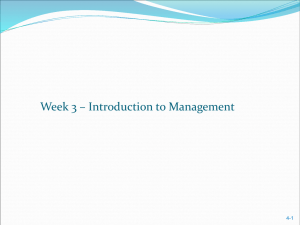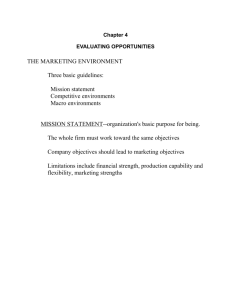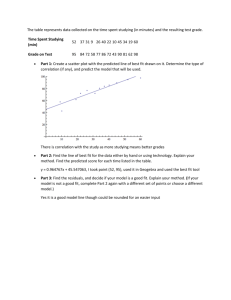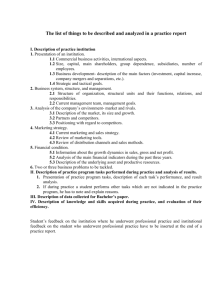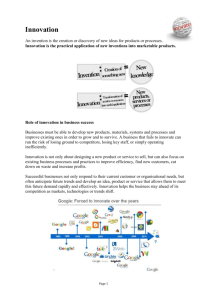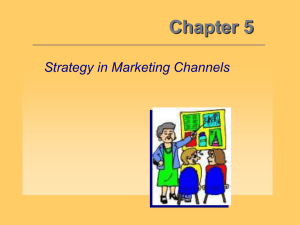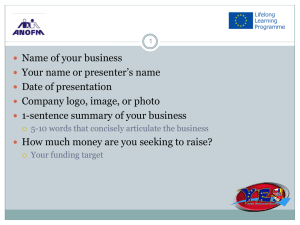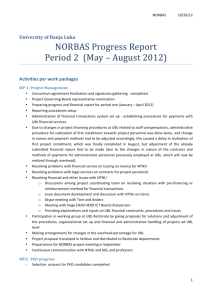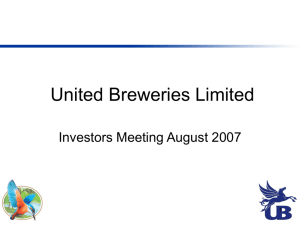My buSineSS concePT
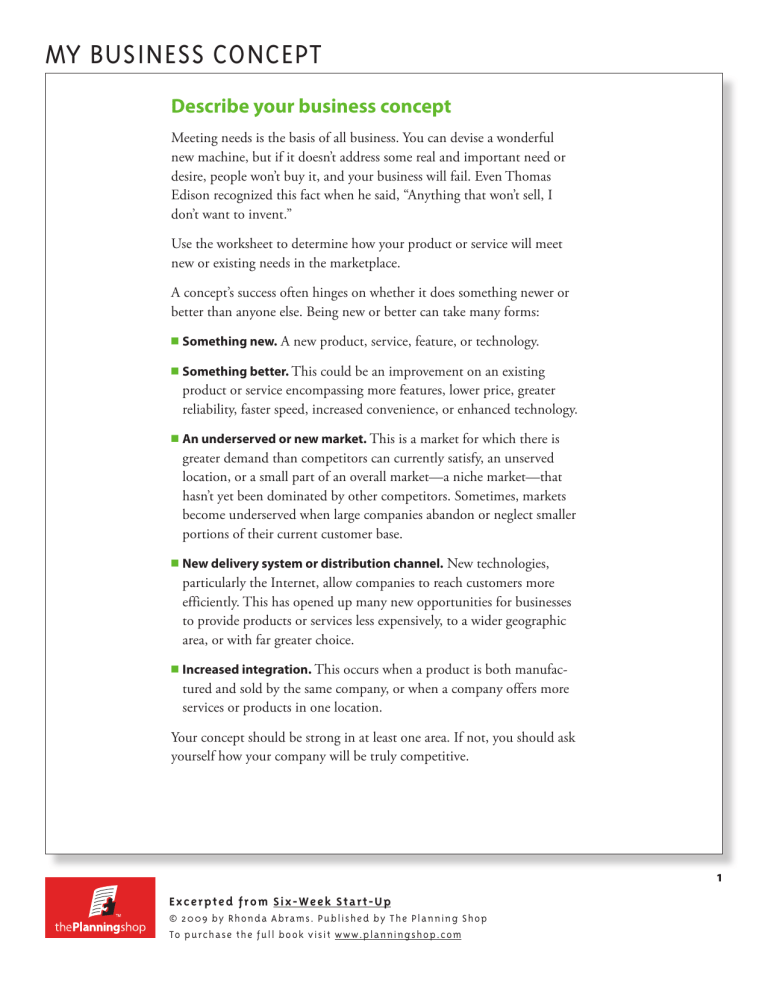
My buSineSS concePT
Describe your business concept
Meeting needs is the basis of all business. You can devise a wonderful new machine, but if it doesn’t address some real and important need or desire, people won’t buy it, and your business will fail. Even Thomas
Edison recognized this fact when he said, “Anything that won’t sell, I don’t want to invent.”
Use the worksheet to determine how your product or service will meet new or existing needs in the marketplace.
A concept’s success often hinges on whether it does something newer or better than anyone else. Being new or better can take many forms: n
Something new.
A new product, service, feature, or technology.
n
Something better. This could be an improvement on an existing product or service encompassing more features, lower price, greater reliability, faster speed, increased convenience, or enhanced technology. n
An underserved or new market.
This is a market for which there is greater demand than competitors can currently satisfy, an unserved location, or a small part of an overall market—a niche market—that hasn’t yet been dominated by other competitors. Sometimes, markets become underserved when large companies abandon or neglect smaller portions of their current customer base. n
New delivery system or distribution channel.
New technologies, particularly the Internet, allow companies to reach customers more efficiently. This has opened up many new opportunities for businesses to provide products or services less expensively, to a wider geographic area, or with far greater choice.
n
Increased integration.
This occurs when a product is both manufactured and sold by the same company, or when a company offers more services or products in one location.
Your concept should be strong in at least one area. If not, you should ask yourself how your company will be truly competitive.
Excerpted from Six-Week Start-Up
© 2009 by Rhonda Abrams. Published by The Planning Shop
To purchase t he full book visit www.planningshop.com
1
My buSineSS concePT
14 | SIX-WEEK START-UP
MY BUSINESS CONCEPT
Answering the following questions will help you clarify your concept:
Is yours a retail, service, manufacturing, distribution, or Internet business?
What industry does it belong to?
What products or services do you sell?
What improved features/services or added value do you provide? What makes you unique or special?
Who do you see as your potential customers?
What is your overall marketing and sales strategy?
Which companies (or types of companies) do you think of as your competition?
What do you think will make customers buy from you instead of your competitors?
Excerpted from Six-Week Start-Up
© 2009 by Rhonda Abrams. Published by The Planning Shop
To purchase t he full book visit www.planningshop.com
2
